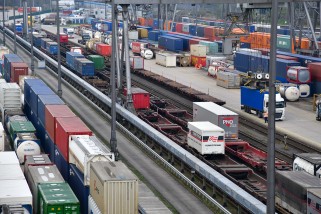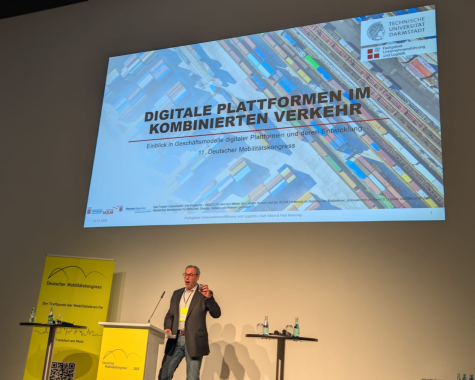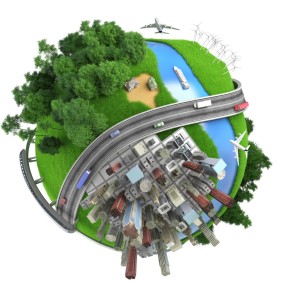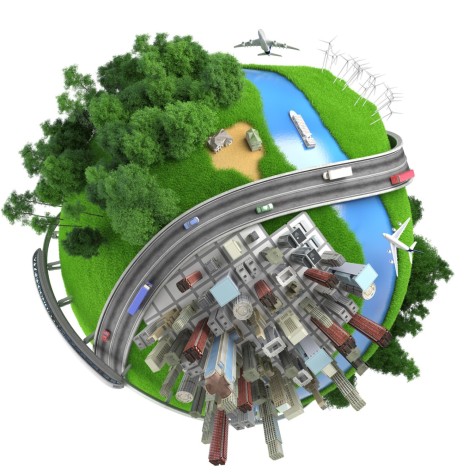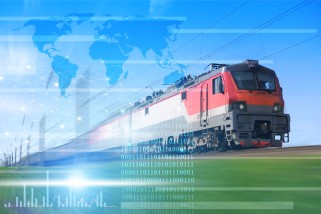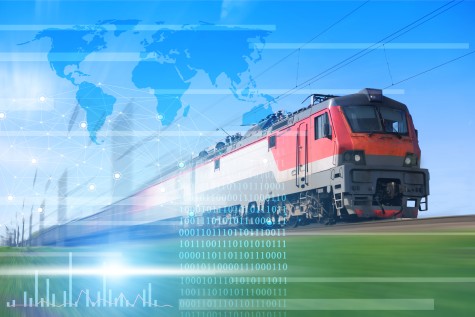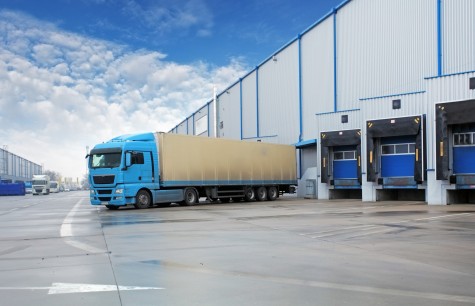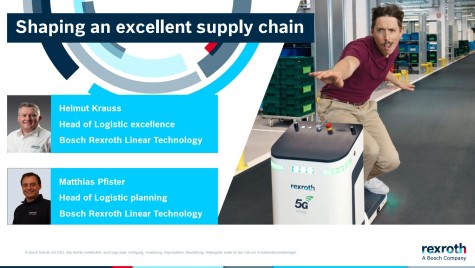-
![]()
![]()
How can AI strengthen combined transport?
2025/12/10
The advantages of combined road/rail freight transport are obvious: we emit less CO2, there is less congestion and less damage to road infrastructure, and truck drivers can sleep in their own beds at night. According to the German government, combined transport in Germany is set to grow by 76% by 2051. But how can this be achieved given all the existing obstacles?
-
![Flugzeug und Container am Flughafen Frankfurt am Main]() Picture: log
Picture: log![Flugzeug und Container am Flughafen Frankfurt am Main]() Picture: log
Picture: logA look behind the scenes of aviation: Excursion to Frankfurt Airport
2025/11/18
Airports have become much more than transit points. They are intricate ecosystems where technology, safety, sustainability, and customer experience intersect.
-
![Prof. Dr. Ralf Elbert auf der Bühne beim 11. Deutschen Mobilitätskongress mit seinem Vortrag zum Thema „Digitale Plattformen im Kombinierten Verkehr“]()
![Prof. Dr. Ralf Elbert auf der Bühne beim 11. Deutschen Mobilitätskongress mit seinem Vortrag zum Thema „Digitale Plattformen im Kombinierten Verkehr“]()
Can digitalization make Combined Transport fit for the future?
2025/11/13
Can digitalization make Combined Transport fit for the future? Yes, hopefully…
-
![Gruppenfoto der Studierenden des Fachgebiets Unternehmensführung und Logistik vor einer großen Skulptur des Merck-Firmenlogos]()
![Gruppenfoto der Studierenden des Fachgebiets Unternehmensführung und Logistik vor einer großen Skulptur des Merck-Firmenlogos]()
Logistics Live! Visiting Merck in Darmstadt
2025/11/08
What’s the best way to understand logistics? Watching it unfold in real life. This winter semester, our students got that chance during an excursion to Merck KGaA in Darmstadt, a global science and technology leader.
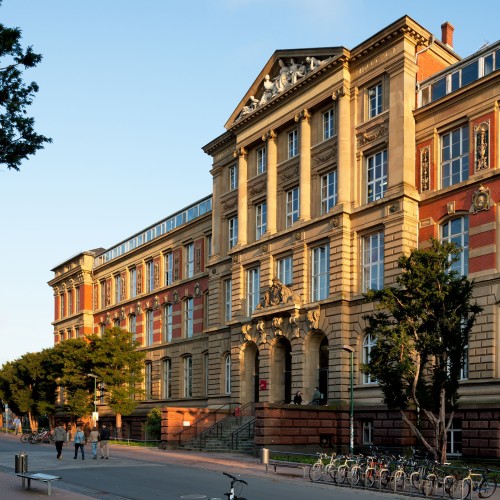
Exciting news from the past
You can find more exciting and informative news about projects and activities in the field of corporate management and logistics in the news archive.
Logistics guide
-
![Transportmittel im Güterverkehr: Flugzeug, Pkw und Lkw]()
![Transportmittel im Güterverkehr: Flugzeug, Pkw und Lkw]()
What is logistics?
The question “What is logistics?” cannot just be answered with “transportation and warehousing” – it encompasses much more. Logistics is the backbone of modern economic systems and ensures that goods, information and services are managed and moved efficiently.
-
![]()
![]()
Value-added networks in logistics
We live in a highly connected world and modern logistics is no longer conceivable without value creation networks. Open and flexible value chains characterize our economic system in a dynamic international environment.
-
![]()
![]()
AI in logistics: recognizing opportunities – using data
The logistics industry is constantly evolving – driven in particular by digitalization, automation and data-based decision-making. Artificial intelligence (AI) is playing an increasingly important role in this, even if the real key to progress lies not in AI itself, but in the underlying data, because no AI can work meaningfully without high-quality, structured and contextualized data.
-
![]()
![]()
Transport management – key expertise for global logistics processes
Global flows of goods require precise planning and coordination. In the Transport Management module at TU Darmstadt, students acquire in-depth knowledge of modern logistics processes, intermodal transport solutions and supply chain management. Practical, future-orientated and with a focus on sustainability, the course prepares students for responsible positions in a dynamic industry.
-
![]()
![]()
Combined transport – sustainable logistics through clever linking of modes of transport
Climate-friendly, efficient, forward-looking: Combined transport links rail, road, water and air to create intelligent transport chains. At TU Darmstadt, students learn how these multimodal systems are planned, controlled and optimized – with a focus on digitalization, sustainability and resilient supply chains. Practical teaching, active research and innovative projects such as the “Combined Transport Forum” or the innovation laboratory at HOLM make TU Darmstadt a pioneer in this field.
-
![Canva_Getty Images Signature_jimfeng]()
![Canva_Getty Images Signature_jimfeng]()
Logistics management: the control centre of modern supply chains
Rethink logistics – at TU Darmstadt. How are global supply chains planned, managed, and optimized? The Master’s program in Logistics and Supply Chain Management equips you with the strategic skills needed for tomorrow’s logistics: connected, digital, and sustainable.
-
![]()
![]()
Logistics studies at TU Darmstadt: Think strategically, act practically
TU Darmstadt offers a modern logistics program that combines academic depth with real-world experience. Students learn to plan and manage complex value chains – from international logistics systems to strategic supply chain management. English-taught courses, close cooperation with industry, and hands-on projects prepare graduates for leadership roles in a global environment.
-
![]()
![]()
City Logistik: Was ist urbane Logistik
Urban logistics manages the flow of goods and traffic in cities efficiently and sustainably. At TU Darmstadt, students learn how eco-friendly supply chains, zero-emission transport, and digital tools can make cities more livable. The degree program in Business Management and Logistics combines technology, sustainability, and urban development – shaping the mobility of the future.
-
![]()
![]()
Supply Chain Management Studies: Careers in Logistics
Whether procurement, production or transport: supply chain management controls the complex processes that make products available worldwide. During their studies, students learn to plan, analyse and sustainably optimise international supply chains. Practical modules such as supply chain simulation at TU Darmstadt show how real logistics processes can be digitally mapped and improved – ideal preparation for sought-after careers in industry, trade or consulting.
-
![]()
![]()
Study logistics and transport – shape the future!
At TU Darmstadt, technology, management and sustainability come together. This interdisciplinary field of study prepares you for key tasks in global freight and passenger transport – from the digital supply chain to climate-friendly mobility.
-
![]()
![]()
From Practical Expertise to Academic Excellence
Rethink Logistics at TU Darmstadt Those looking to advance their career in the logistics industry will find the Fachwirt in Freight Transport and Logistics the ideal next step. This IHK qualification provides hands-on management know-how and opens the door to an academic logistics degree at TU Darmstadt. Here, professionals can deepen their understanding and prepare for leadership roles in international logistics and supply chain management.



